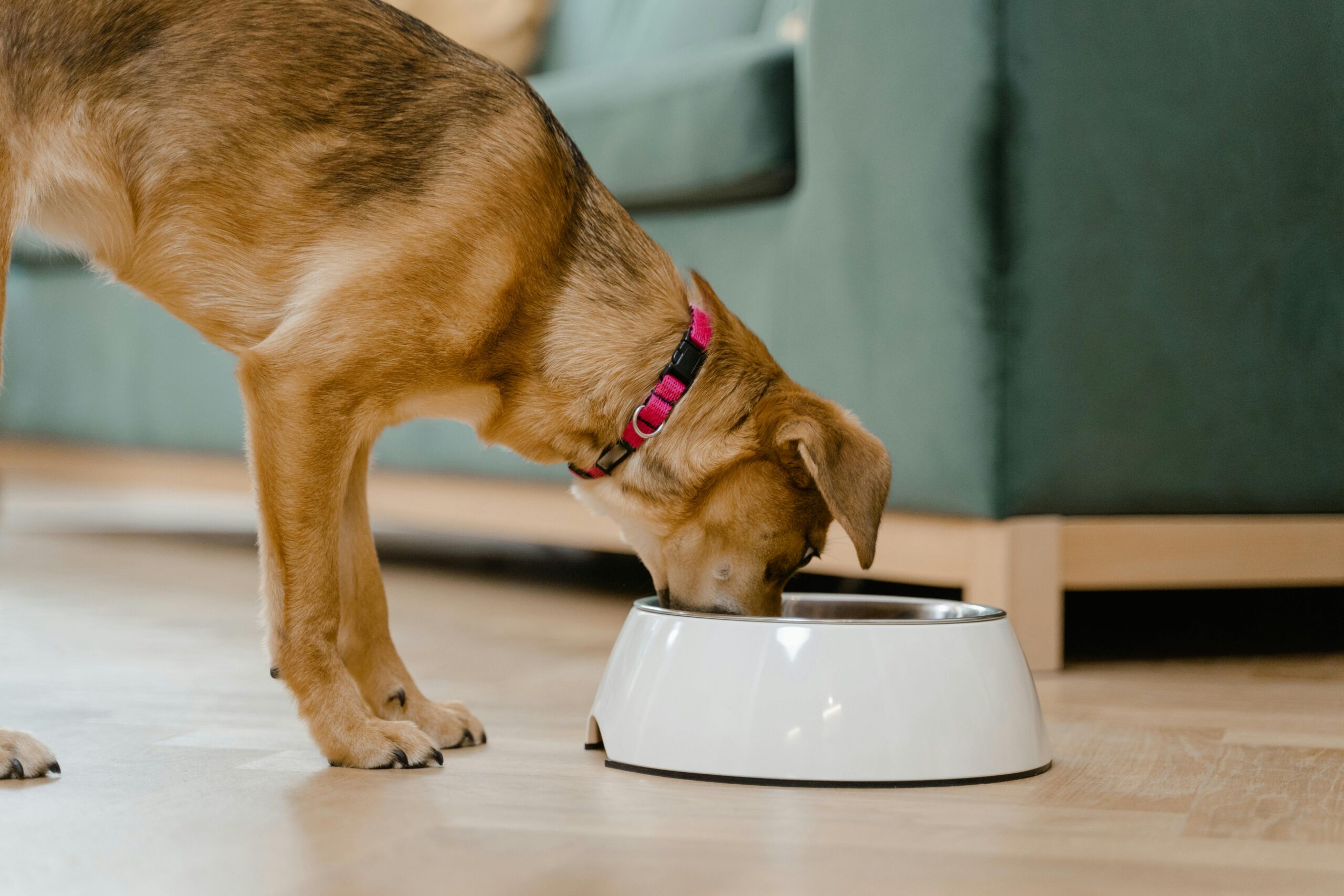Feeding your dog properly is crucial not only for their health but also for their happiness. Here are ten essential dog feeding tips every dog owner should know to ensure their furry friend is getting the best nutrition possible.
By following these ten tips, you can ensure that your dog is receiving the balanced diet they need to thrive and live a long, healthy life.
1. Know Your Dog’s Nutritional Needs
Different breeds, ages, and sizes of dogs have varying nutritional requirements. Puppies, for instance, need more calories and protein compared to adult dogs because they are still growing.
Senior dogs might need lower-calorie diets but with the same amount of protein. Always consider your dog’s activity level, weight, and health when choosing their food.
Consulting with your veterinarian can help ensure that your furry friend is getting the right balance of nutrients for their specific needs.
Additionally, reading the labels on dog food carefully and choosing high-quality, well-balanced options can greatly benefit your dog’s overall health and well-being. Remember, a well-fed dog is a happy and healthy dog!
2. Choose High-Quality Dog Food
- Not all dog foods are created equal. Look for foods that list a protein like chicken, beef, or lamb as the first ingredient.
- Avoid foods with excessive fillers like corn, wheat, and soy.
- Premium foods might cost more, but they provide better nutrition and can lead to better health outcomes for your pet.
When choosing the best food for your furry friend, it’s essential to prioritize their nutritional needs. Opting for a dog food that features high-quality proteins such as chicken, beef, or lamb as the primary ingredient ensures that your pet receives the necessary nutrients for energy and muscle development.
By steering clear of fillers like corn, wheat, and soy, you can help prevent potential allergies and digestive issues in your pet.
Investing in premium dog food may come with a higher price tag, but the long-term benefits are well worth it. These foods offer superior nutrition that can contribute to a shinier coat, stronger immune system, and overall better health for your beloved companion. Remember, providing your pet with quality food is an investment in their well-being and happiness.
3. Read the Labels
- Understanding the ingredients and nutritional information on dog food labels is crucial.
- The label will indicate if the food meets the nutritional levels established by the AAFCO (Association of American Feed Control Officials), which is a good starting point. Also, watch out for any artificial additives or preservatives.
- It’s important to pay close attention to the list of ingredients on the dog food label. Look for high-quality protein sources like meat or fish, as they are essential for your furry friend’s health.
- Whole grains and vegetables are also beneficial for providing a balanced diet. Keep an eye out for any potential allergens or additives that may not be suitable for your dog’s specific dietary needs.
- Remember, when in doubt, consult with your veterinarian for guidance on choosing the best food for your beloved pet.
4. Consider Your Dog’s Life Stage and Lifestyle
Puppies, adults, and seniors need different types of nutrients. Active breeds require more calories, while overweight pets might need a diet food. There are also breed-specific foods available that are tailored to the unique needs of certain dog breeds.
These specialized breed-specific foods are formulated to address the specific nutritional requirements and health concerns that are common to certain dog breeds.
By considering the breed’s size, activity level, and predisposition to certain health issues, these foods can provide targeted nutrition to support the overall well-being of the dog. Always consult with a veterinarian to determine if a breed-specific food is the right choice for your furry friend.
5. Measure Meals
Overfeeding is a common problem among dogs, leading to obesity and its associated health problems. Use a measuring cup to ensure you are giving the exact amount recommended on the food package.
Adjust as necessary based on your dog’s age, weight, and activity level.
This will help to prevent overeating and maintain a healthy weight for your furry friend. Additionally, incorporating regular exercise into your dog’s routine is crucial for their overall well-being.
A daily walk, playtime, or interactive toys can help keep your dog active and fit. Remember, a balanced diet and proper portion control, along with regular physical activity, are key to ensuring your dog stays healthy and happy for years to come.
6. Maintain a Feeding Schedule
Consistency is key. Feeding your dog at the same times every day helps regulate their metabolism and aids in digestion. Typically, adult dogs require two meals a day, while puppies may need three or more.
Establishing a routine not only benefits your dog’s physical health but also their mental well-being. Dogs thrive on predictability and structure, so maintaining a consistent feeding schedule can reduce their anxiety and create a sense of security. Remember to provide a balanced diet tailored to your dog’s age, size, and activity level. By prioritizing consistency in feeding times and meal portions, you are actively contributing to your furry friend’s overall health and happiness.
7. Mix Wet and Dry Food
Some dogs prefer wet food, others dry, and some a combination of both. Mixing wet and dry food can help enhance the flavor and texture of their meals, making eating more enjoyable while providing a balanced diet.
When combining wet and dry food for your furry friend, it’s essential to maintain a proper balance to meet their nutritional needs. Wet food can be a great source of hydration and can add variety to their diet, while dry food helps keep their teeth clean and healthy. By mixing the two, you can create a meal that not only satisfies their taste buds but also provides essential nutrients for their overall well-being. Remember to consult with your veterinarian to ensure you are meeting your dog’s specific dietary requirements and to address any concerns about their diet. Your pup will surely appreciate the delicious and well-rounded meals you prepare for them!
8. Keep Fresh Water Available
Always make sure your dog has access to fresh, clean water. Hydration is as important as nutrition when it comes to keeping your dog healthy.
Ensuring your furry friend has a constant supply of fresh water is vital for their well-being. Just like us, dogs need to stay hydrated to maintain their overall health.
Whether they are indoors or outdoors, make it a point to check their water bowl regularly and refill it with clean water.
Hydration plays a crucial role in supporting their bodily functions, regulating body temperature, and aiding digestion. So, remember to keep that water bowl topped up and encourage your dog to drink throughout the day. Your four-legged companion will thank you for it with their wagging tail and boundless energy!
9. Be Cautious with Human Food
While it’s tempting to feed dogs scraps from the table, many human foods are unhealthy or even dangerous for dogs. Foods like chocolate, grapes, onions, and xylitol (found in sugar-free foods) are toxic to dogs.
Feeding your furry friend human food might seem like a loving gesture, but it’s important to remember that not all food is safe for dogs.
Chocolate, grapes, onions, and xylitol are just a few examples of items that can be harmful to our canine companions. To keep your dog healthy and happy, it’s best to stick to a balanced diet specifically designed for them.
If you’re ever unsure about what foods are safe for your dog, consulting with a veterinarian is always a good idea. Your pup will thank you for looking out for their well-being!
10. Consult Your Veterinarian
Regular check-ups with the vet are vital. They can provide personalized advice based on your dog’s specific health needs and can recommend adjustments to their diet as they age or their health changes.
Regular check-ups with the vet are vital for ensuring the overall well-being of your beloved furry friend.
These visits serve as an opportunity for the vet to assess your dog’s health status, detect any potential issues early on, and provide tailored advice to address specific health concerns.
As your dog ages, their dietary requirements may change, and the vet can recommend appropriate adjustments to their diet to support their changing health needs.
By staying proactive with regular check-ups, you are taking important steps to help your dog lead a healthy and happy life.
Conclusion
By adhering to these ten essential tips, you can ensure that your dog is not only well-fed but also in optimum health. Feeding your dog is about more than just giving them food; it’s about nourishing a beloved family member.
It’s important to remember that every dog is unique, so it’s essential to tailor their diet to their specific needs. Consider factors such as their age, size, breed, and activity level when selecting the right food for them. Providing a balanced diet rich in nutrients will help support their overall health and wellbeing.






Pingback: 10 Common Dog Health Problems and Their Solutions - woofytips
Pingback: Dogs and Digging: 8 Reasons They Can’t Resist - woofytips